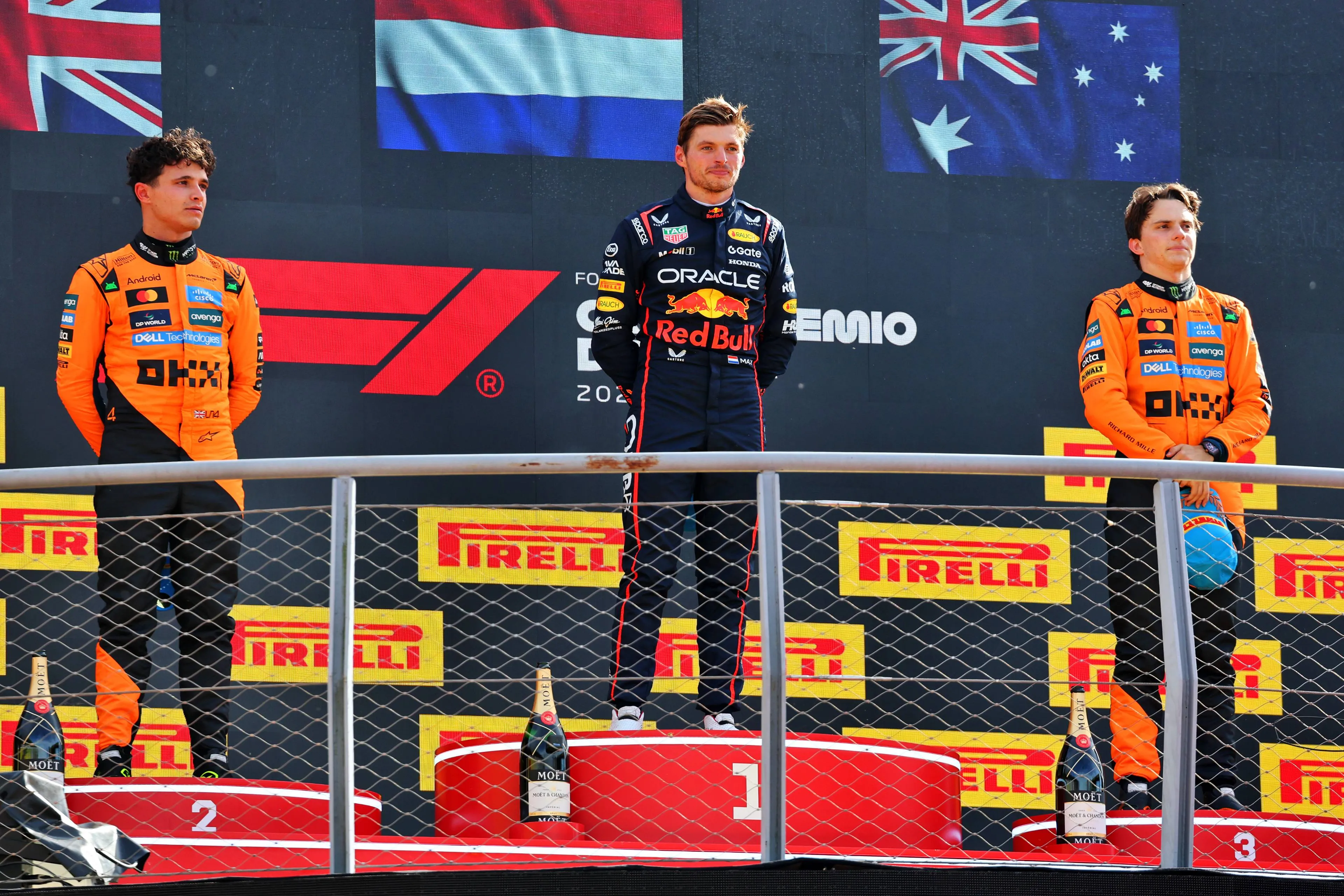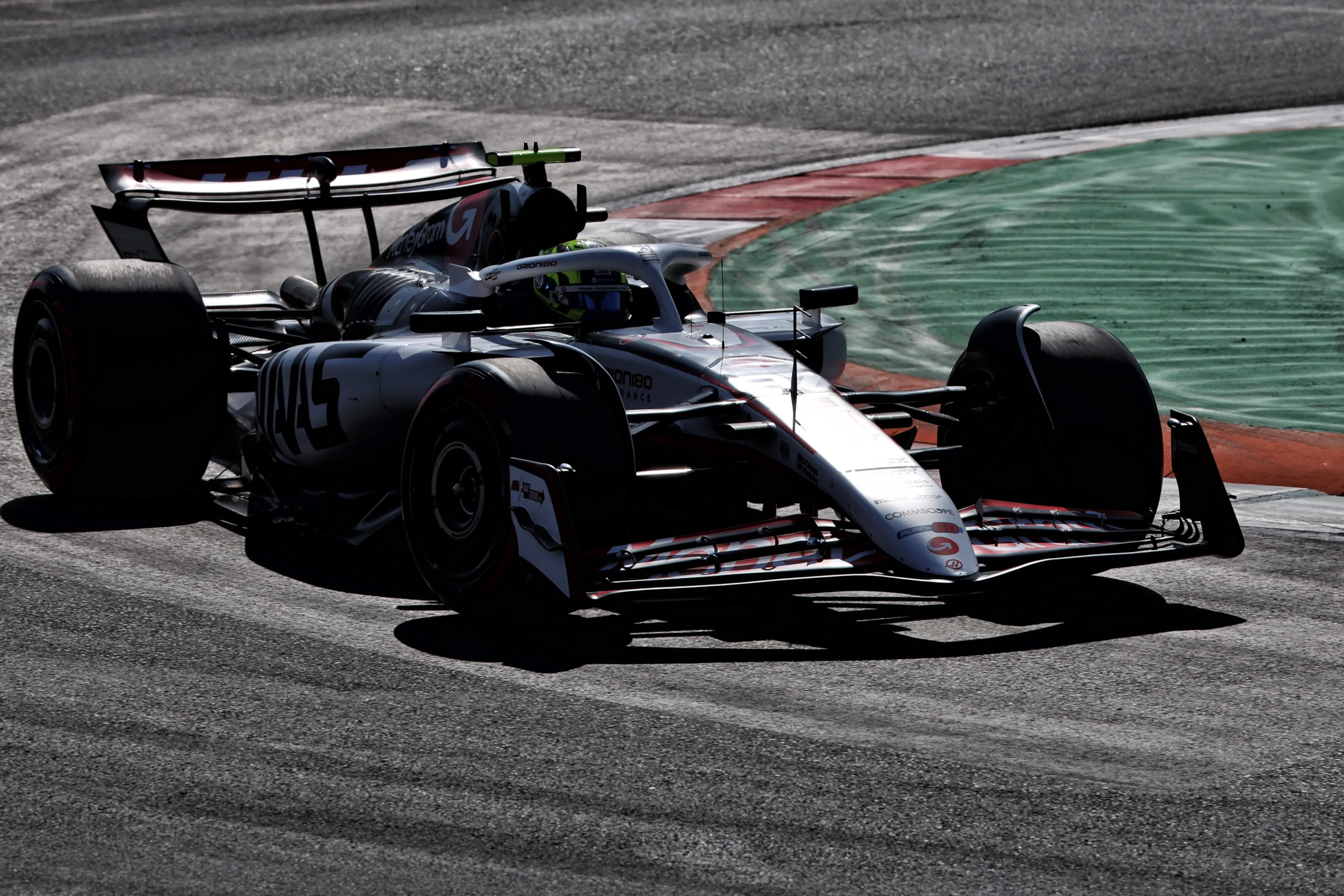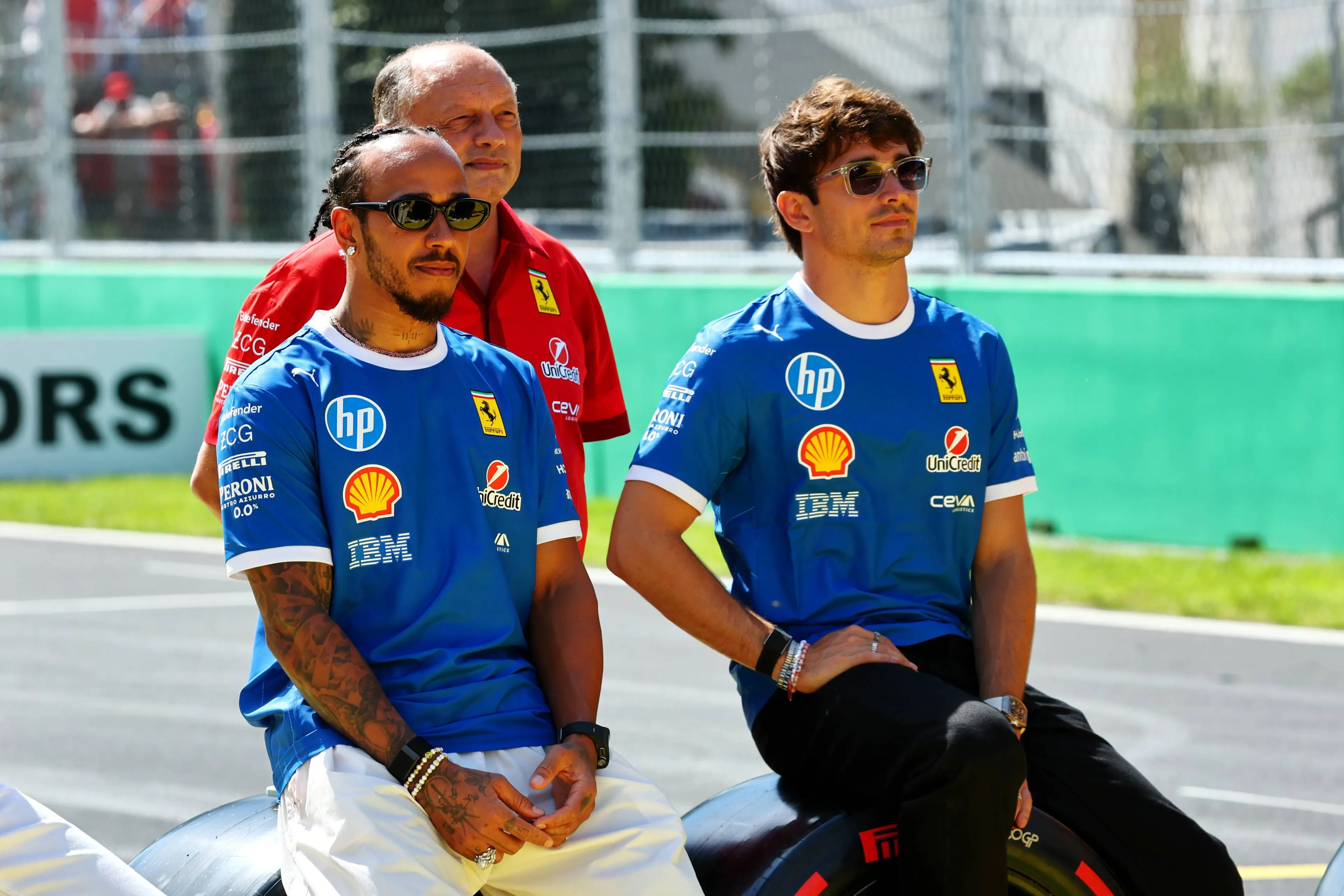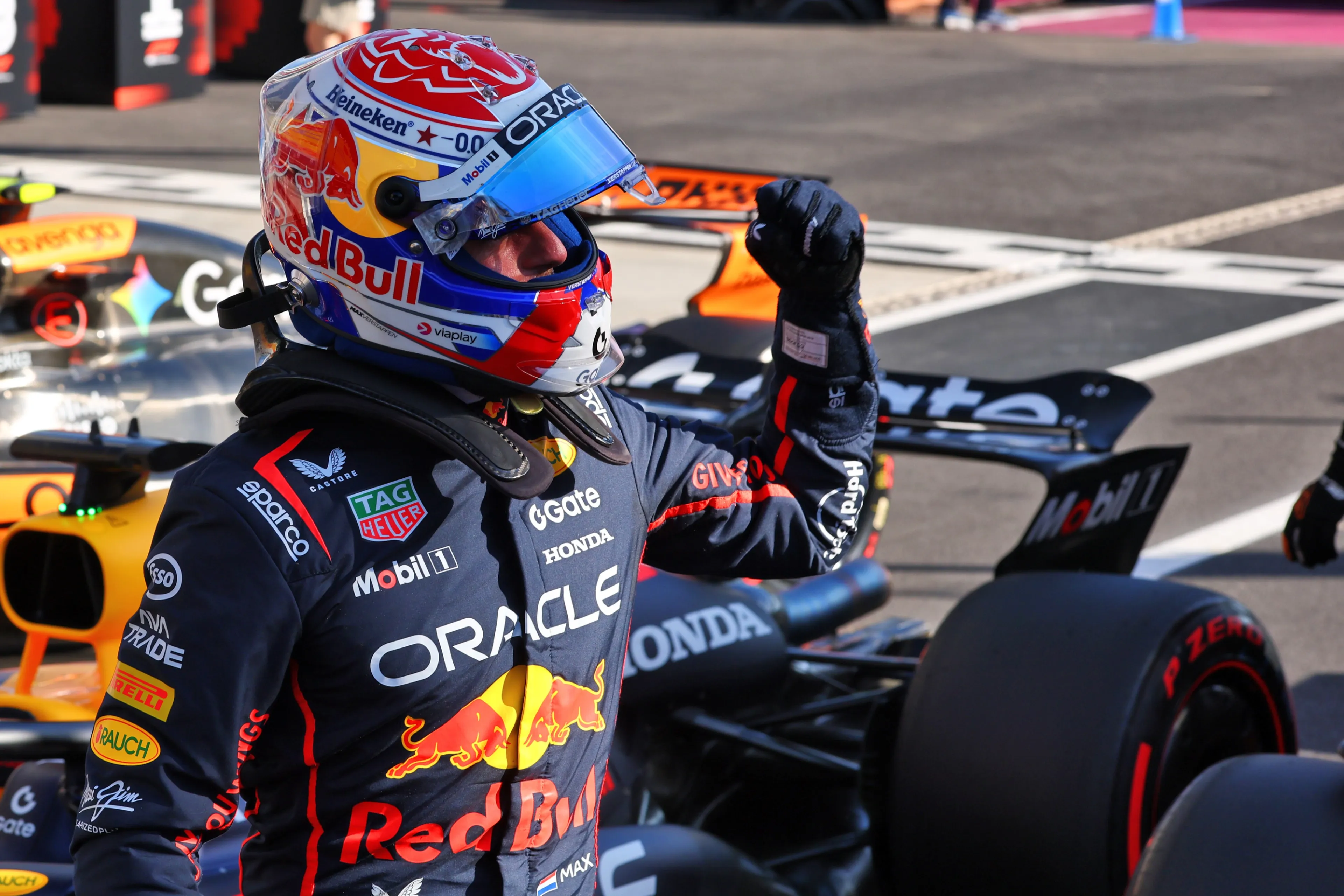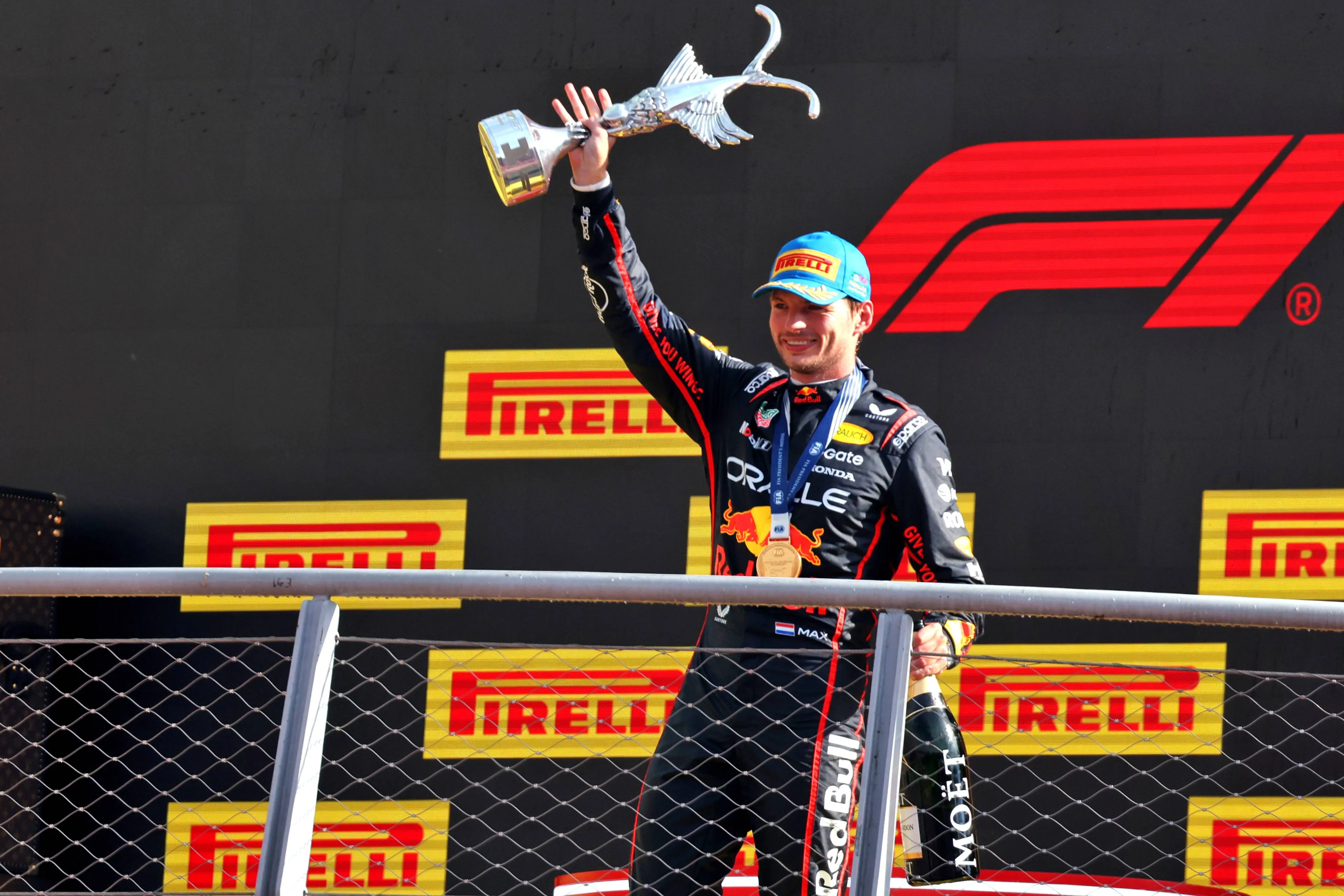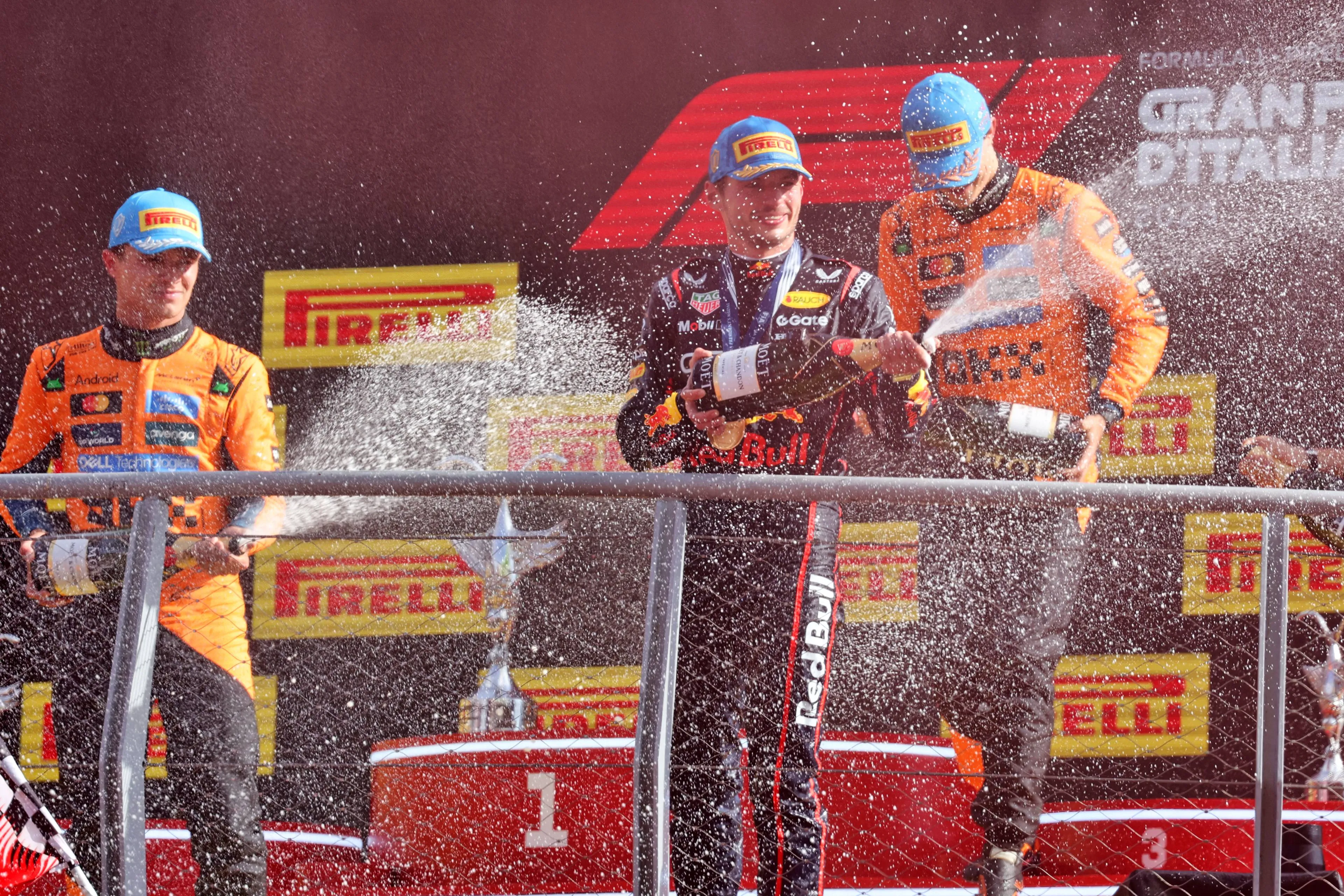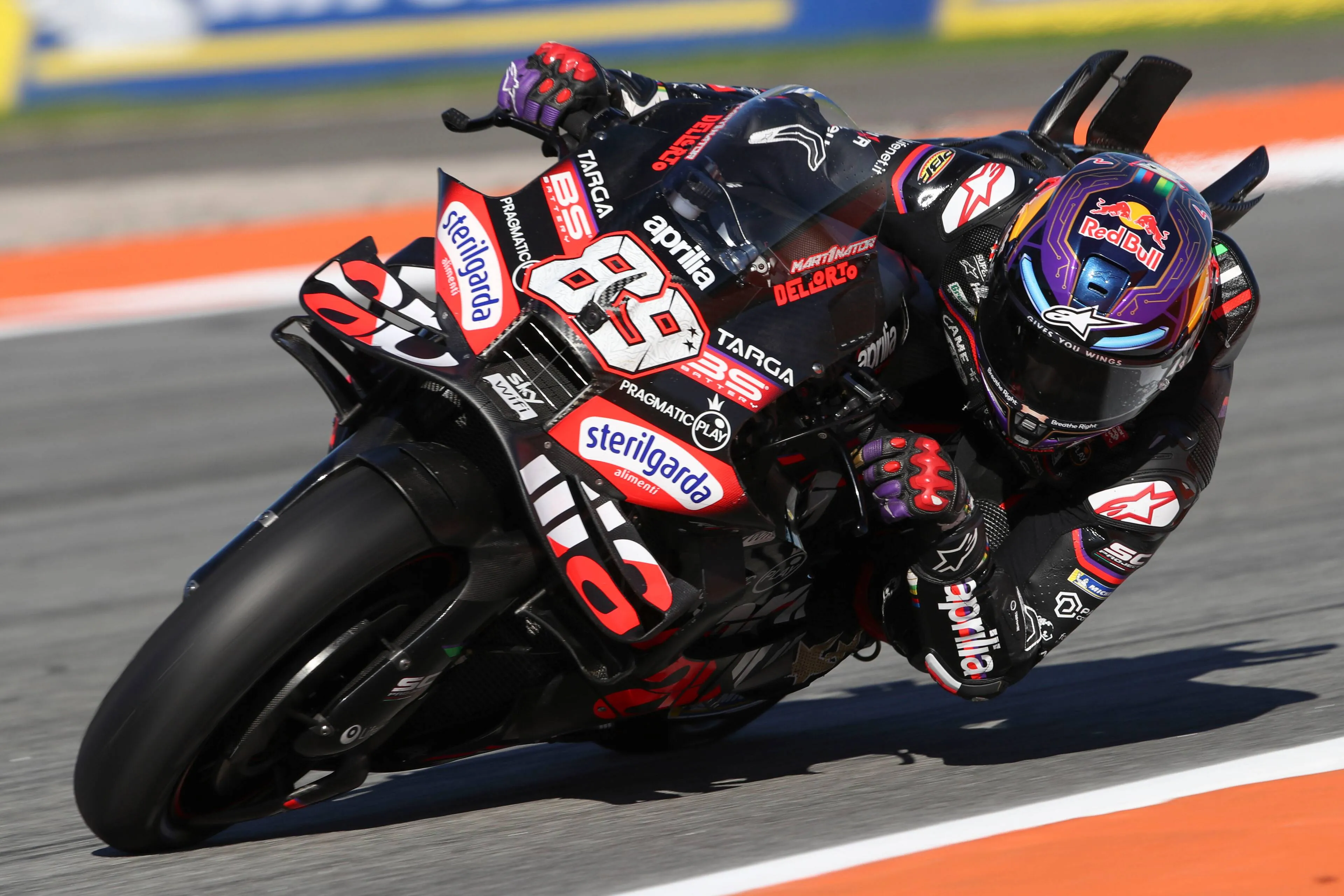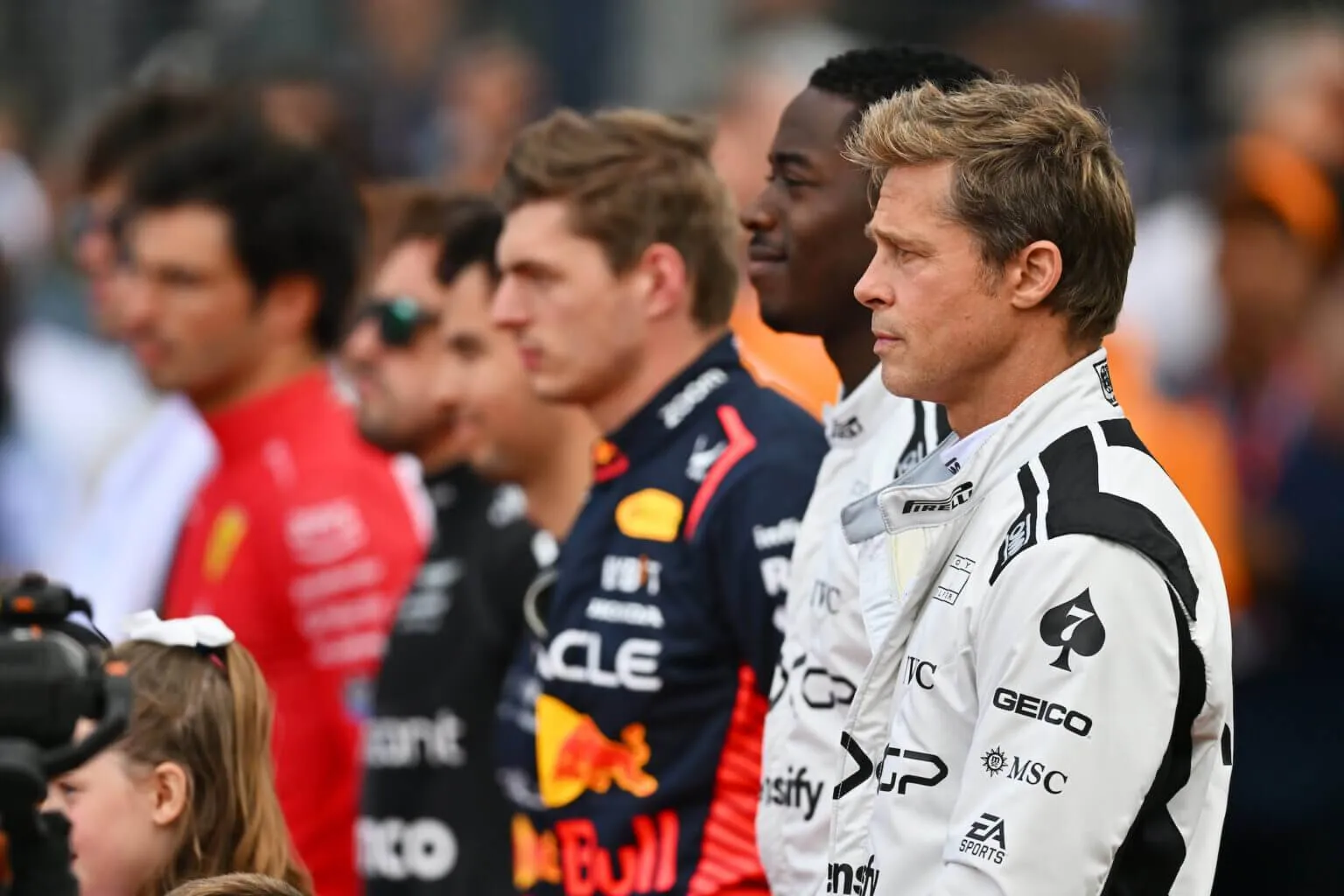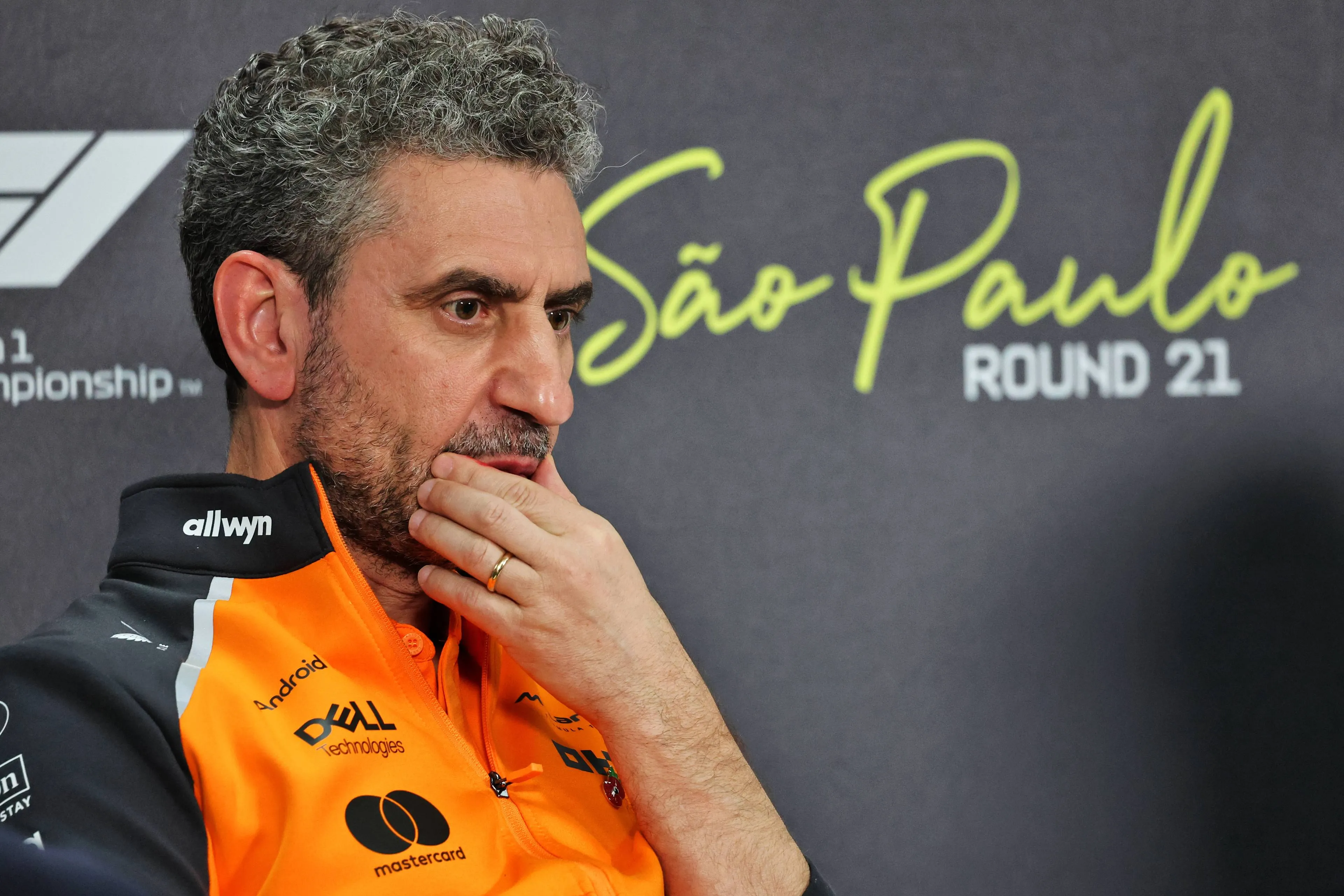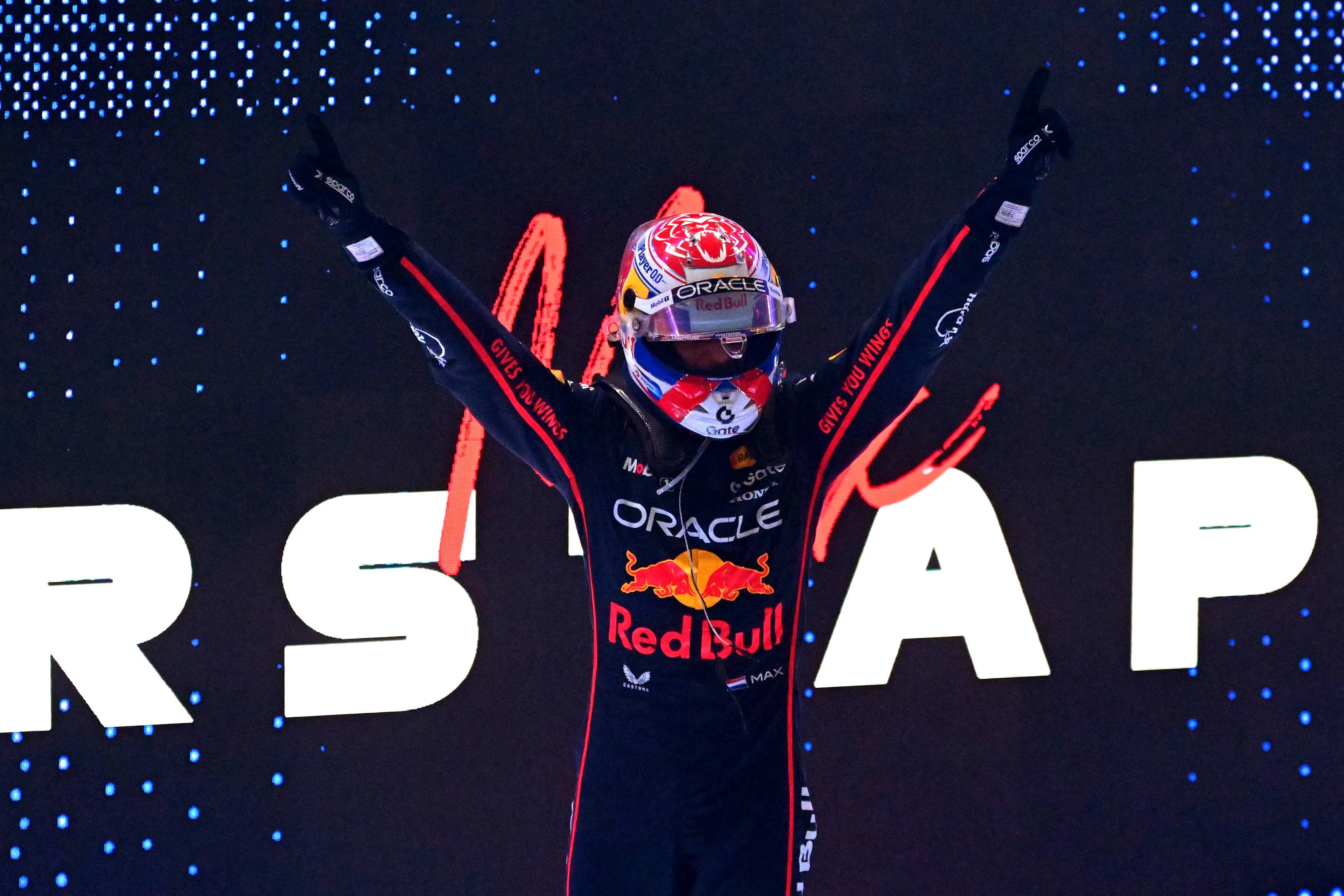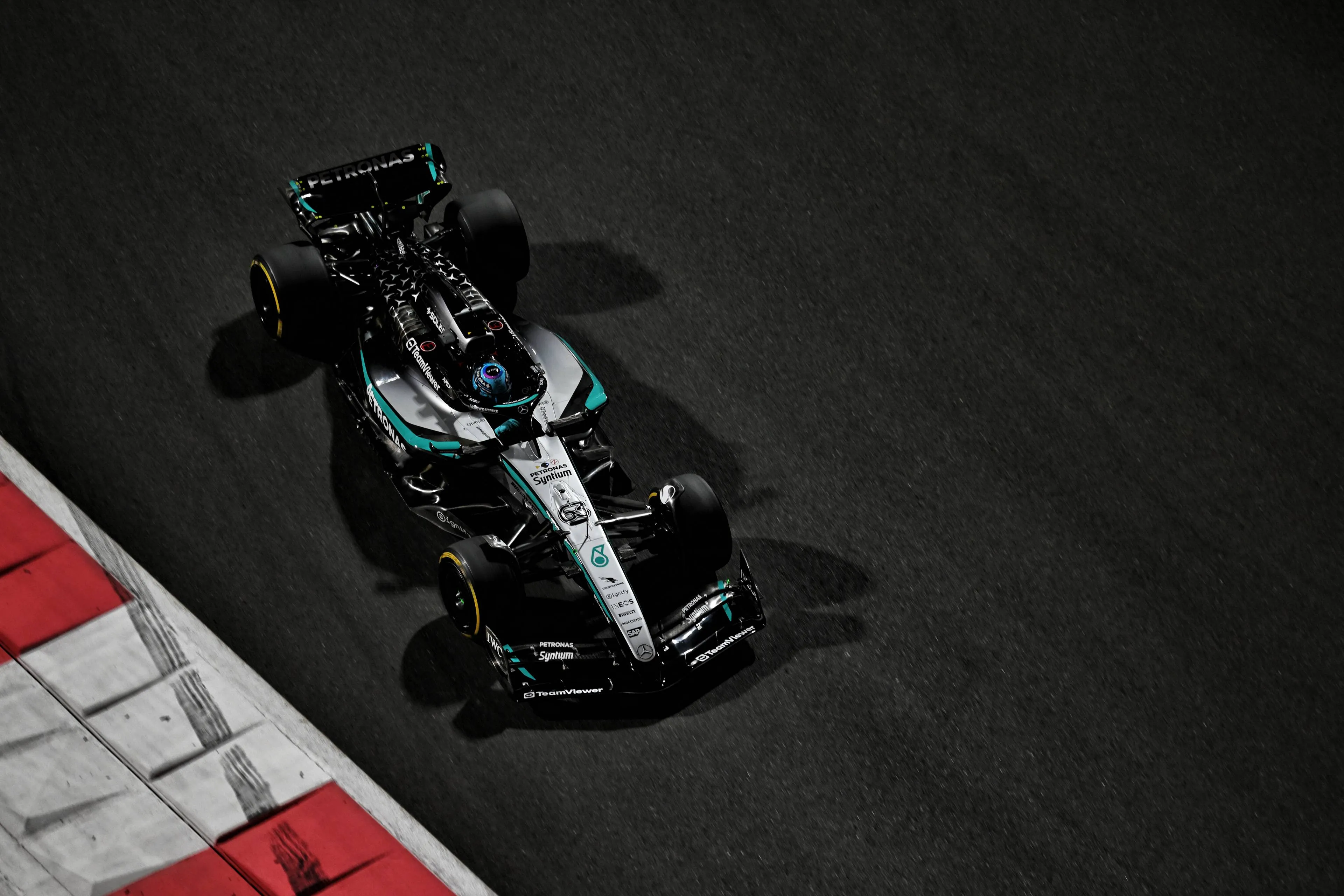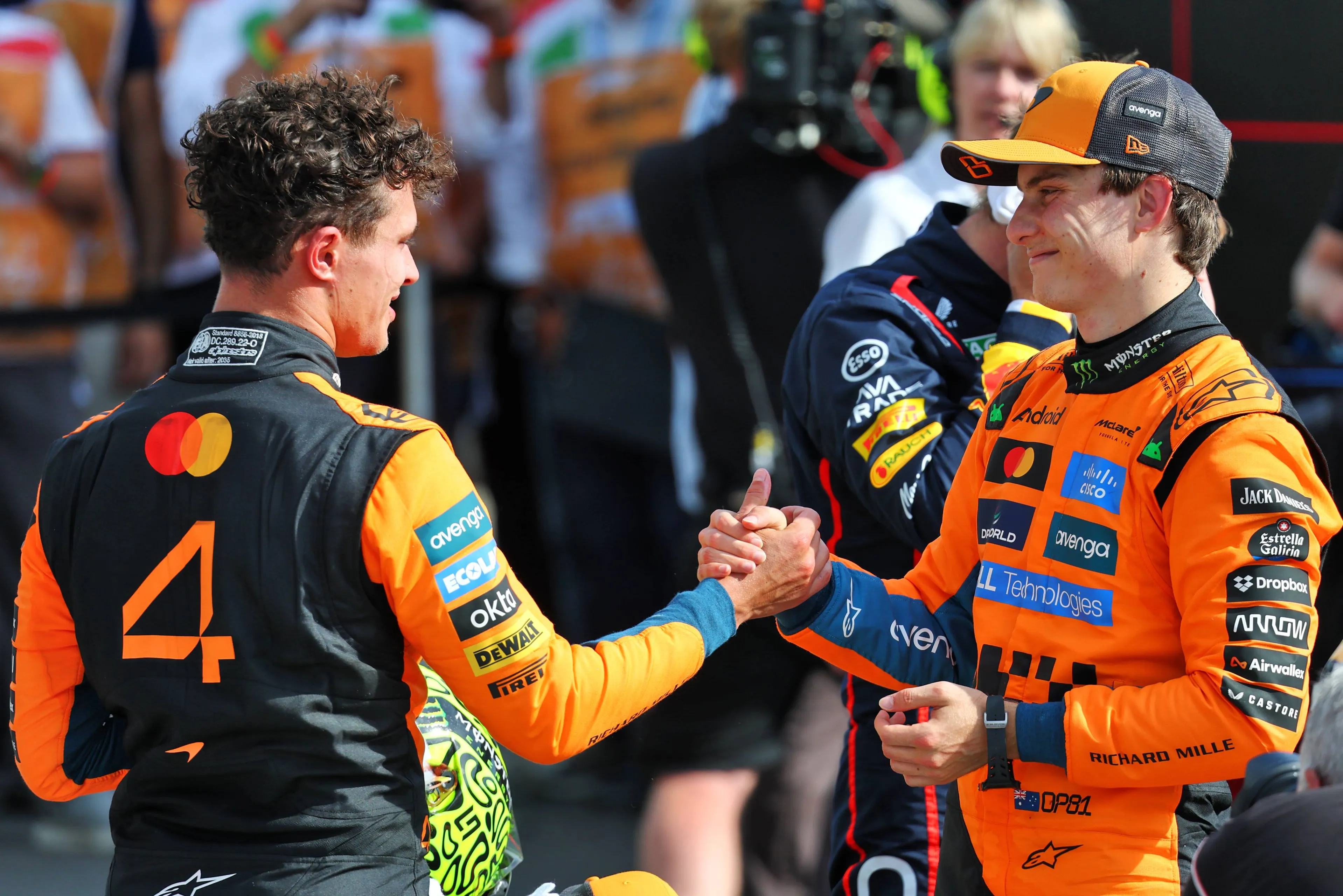
Norris and Piastri after Italian GP - Photo: RacePictures
McLaren's papaya rules spark controversy in Monza - Rightly so?
20:30, 07 Sep 2025
Updated: 10:58, 08 Sep 2025
4 Comments
McLaren are the talk of the paddock following their controversial decision to issue team orders at the Italian Grand Prix. But did their attempt to “right a wrong” actually make matters worse?
Since the flag dropped at the Autodromo Nazionale di Monza, where Max Verstappen stormed to the fastest race win in Formula One history, the focus has been on how McLaren’s strategy calls shaped the battle between their drivers, Oscar Piastri and Lando Norris.
Why McLaren told Piastri to let Norris by
As the race neared its end, the Woking-based team could see their gamble to wait for a safety car was not going to pay off - sticking it out to wait for a race neutralisation was the wrong choice.
McLaren have been very transparent in the way they go racing, always ensuring fair treatment for both their drivers, to preserve team harmony and maintain healthy intrateam dynamics. An approach which has worked out well for the papaya team.
That said, it has not been without debate, McLaren's decision-making process has been laid bare but has now come to a crunch as both drivers are in an intense and narrow title battle.
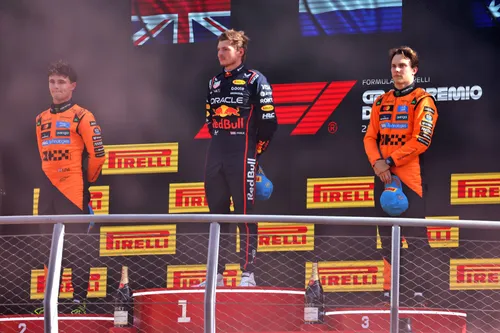
Verstappen beats McLaren drivers in Italy
Where it went wrong for McLaren at Monza
When Piastri was called in first for fresh tyres, Norris stayed out a lap longer. But a slow stop for Norris allowed Piastri to jump him, taking second place.
That pitstop error changed the order. Almost immediately, Piastri was instructed over the radio to let Norris back through, the team arguing that Norris had been ahead on merit all weekend.
Norris had indeed shown stronger pace, but should McLaren have interfered? Racing, by nature, is shaped by unpredictability. Just as Norris had suffered cruelly in Zandvoort a week earlier with a late DNF, so too should his Monza misfortune have been left to stand. Pitstop errors are part of the sport.
By overriding that reality, McLaren removed the very unpredictability that defines racing.
Read also
Why McLaren's approach was wrong
Up until then Norris had the edge on Piastri throughout the entire race weekend. Norris showed superior form and pace over Piastri. So, would it have been 'unfair' if Piastri had finished ahead of Norris? Yes, it would have. But it also would've been right.
Grand Prix racing is a life-mimicking sport, where unpredictable and unexpected happenings will take place and affect a race result. Norris will know that better than anyone with the Briton dropping out of the race in the last stages of the Dutch Grand Prix. A decisively undeserved result over which no one had no power or control over, least of all Norris.
The Briton's pitstop going awry should've been the same, because injustice in sport is at the order of the day, and sportsmen can only ever face its consequences, since the outcomes that arise, be it on the track, or on a ptich, field or ring, barring a decision by an official, must never be go challenged.
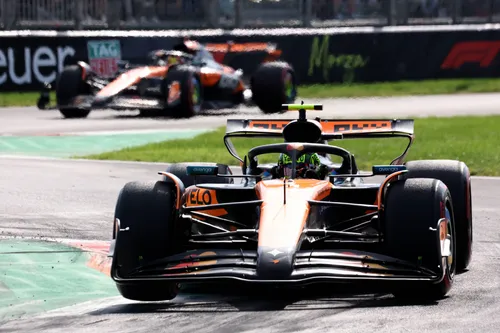
Why McLaren deserves credit and respect
Nevertheless, one thing must be acknowledged, McLaren's undeterred approach to their philosophy, instilled by team principal Andrea Stella, and supported to every extent by CEO Zak Brown, and the way they go about racing is nothing short of admirable.
Their allegiance to both of their drivers is commendable, the way they have so far managed the dynamics between both Norris and Piastri, and this whilst the two are locked in a so far season-long title battle, is certainly uncommon.
Most of all, the respct with which they treat both Norris and Piastri are the gateway for the impressive cohesion with which the team operates day in and day out.
With such values present at the core of the Woking-based team it is unsurprising that they currently find themselves dominating both title races.
Read also
Read more about:
Rumors
Popular on GPBlog
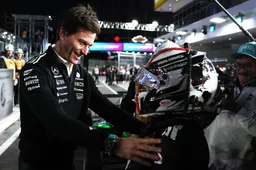
1
Mercedes announces female driver for 2026 season
3427 times read

2
Aston Martin tipped to usurp F1’s long-standing order in bold 2026 prediction
708 times read

3
First look: Mercedes unveil striking W17 livery as 2026 season looms
676 times read

4
Mercedes forgo Barcelona shakedown as W17 makes on-track debut
548 times read
Loading

